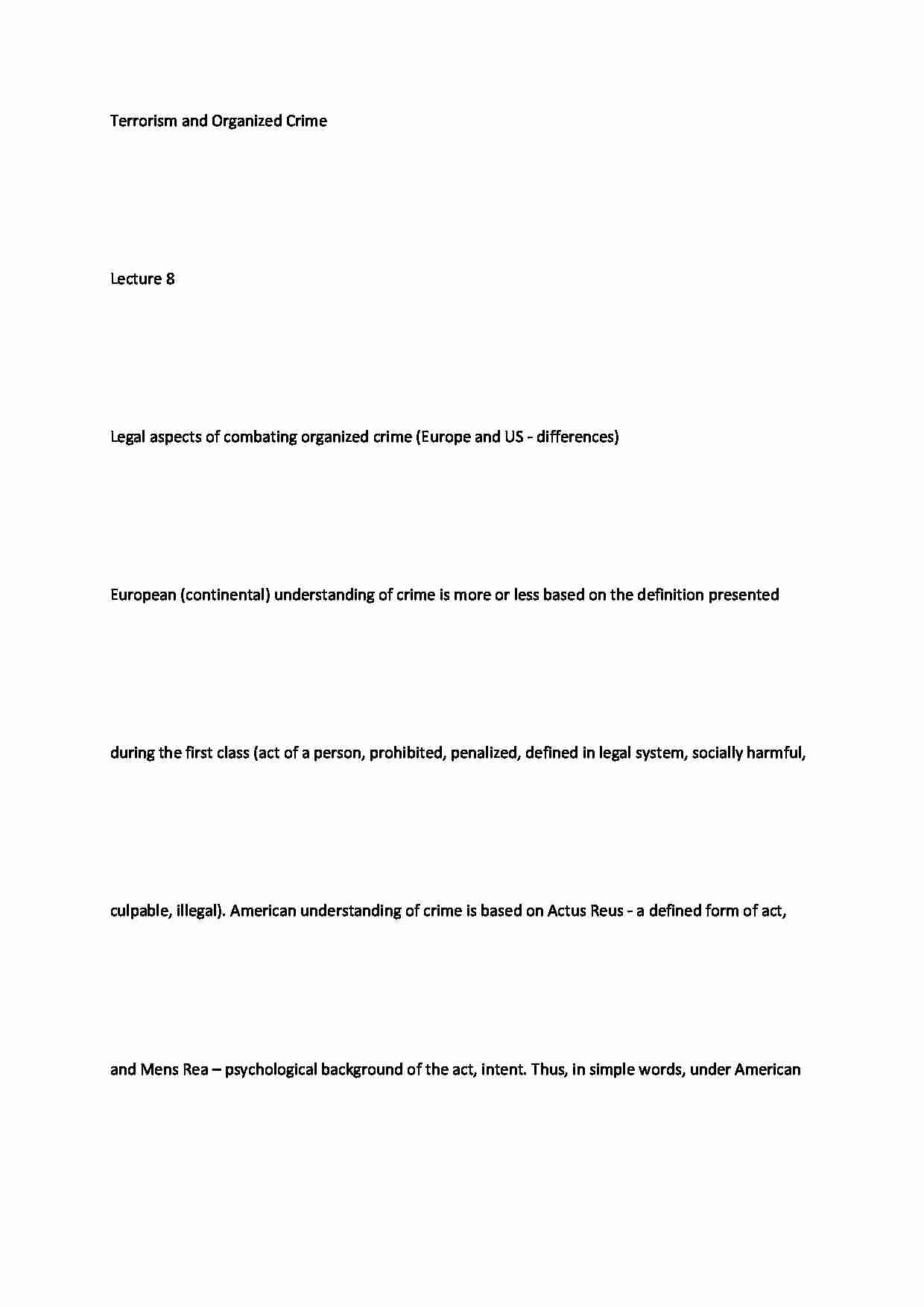To tylko jedna z 6 stron tej notatki. Zaloguj się aby zobaczyć ten dokument.
Zobacz
całą notatkę



Terrorism and Organized Crime
Lecture 8
Legal aspects of combating organized crime (Europe and US - differences)
European (continental) understanding of crime is more or less based on the definition presented during the first class (act of a person, prohibited, penalized, defined in legal system, socially harmful, culpable, illegal). American understanding of crime is based on Actus Reus - a defined form of act, and Mens Rea - psychological background of the act, intent. Thus, in simple words, under American criminal law a lawyer checks what has happened and what was the intent of the perpetrator. As far as common crimes are concerned this difference is not so important. However, when it comes to organized crime it's crucial. In European law there are definitions of crimes like: belonging to, or running an organized criminal group. In American law there are no definitions of organized criminal group. Combating organized crime is based on the concept of conspiracy - it's enough to prove that perpetrator's Mens Rea is to be a member of conspiracy to commit crimes to accuse him or her of any criminal act committed by anyone conspiring. Another difference between American and European approach to crime refers to absence of the jury in European case (at least in most of the cases - GB). A typical misconception in Europe is, that jury introduces subjective and unprofessional element to the process. However it's worth noticing, that American prosecution, mostly because the judges in the jury system are very limited in their decisions, may influence the process more than in any European case. That's why in the American movies you may see the prosecutor so often cutting a deal with the accused - by modeling the accusation a prosecutor limits the judge's ability to rule. In Europe it is far less possible - judges have much more freedom as far as the verdict is concerned. Thus, introducing socially sensitive element in the process - the jury - makes up for the advantage of the prosecution in the earlier stages of the
(…)
… advantage of organized criminal groups that comes from acting on a large territory (more opportunities to cover up the illegal business). European lawyers, who act on a smaller scale still do not face the same scale of problems. Additional Reading:
S. J. Schulhofer,C. S. Steiker,S. H. Kadish, Criminal Law and Its Processes, 8th edition, Wolters Kluver, 2007.
…
... zobacz całą notatkę






Komentarze użytkowników (0)